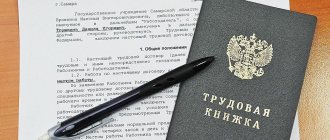Basic Concepts
This is the posthumous disposition of the owner of his fortune; accordingly, it acquires legal force only after the death of the testator, when he can no longer influence the fate of the values that belonged to him. What can a testator make a will for:
- • real estate: land plot, apartment, share in the apartment, profit-generating objects (workshop, apiary, greenhouse complex);
- • movable assets: car, household items or art, jewelry;
- • bank accounts, cash.
It happens that after the death of a relative, several different options for expression of will are discovered. In this case, the law by default recognizes the last document as valid. Therefore, you need to be very responsible about the desire to change your decision if it arose under the influence of a trifling quarrel: who knows whether you will have time to cool down and again include your loved one among the heirs.
What property can be bequeathed?
The future testator has the right to bequeath all his own property, including what will be acquired in the future, or only a certain share of it. He has the right to divide the inheritance in any shares and in any order between legal successors, taking into account only personal considerations.
The following may be included in a sample will for all property in the form of an inheritance estate:
- real estate as well as movable property;
- plot of land;
- securities;
- bank deposits;
- things of specific monetary value;
- sums of money that were not paid to the testator while he was alive;
- company or agricultural firm, rights of participation in them.
Please note: as any sample will for movable and immovable property shows, in order to draw up an administrative document, for example, for an apartment, you need to accurately indicate its address. That is, it is necessary to determine and identify the inherited thing.
Any property can be included in the estate of the inheritance, including that which at the time of drawing up the testamentary document was not included in the personal assets of the testator. To dispose of it in advance, the testator can determine the transfer of all property, wherever it is and whatever its contents.
Will there really be a handwritten will?
Is it possible to write a will by hand without a notary? To do this, you need to refer to the norms of the Civil Code of the Russian Federation, which establish the following requirements for the form of wills:
- a testamentary disposition can only be expressed in the form of a written document;
- the law does not contain restrictions on the procedure for filling out a testamentary form - it can be drawn up on a computer or printing machine, filled out by hand or dictated to a notary;
- After execution of the document, it must be signed personally by the testator - such formalities are not allowed through representatives.
How to draw up a will without a notary so that it has legal force? To do this, the document must contain the following points:
- date and place of compilation;
- personal data of the testator;
- a list of property that the testator wants to transfer to the heirs;
- circle of property recipients - close and distant relatives, strangers, organizations;
- the procedure for the distribution of assets and funds - the size of shares, rules for subassignment, etc.;
- personal signature of the testator.
Naturally, handwritten text must be legible, readable and understandable. In addition, the will should not be contradictory - its contents should be expressed in clear language that does not allow for double understanding. Is it possible to make a will without a notary at home? The law does not contain restrictions on the place where documents are drawn up - this can be done at home or directly in a notary’s office.
Let's consider whether a will is valid by hand, written without a notary, and what needs to be done to give it legal force.
The answer is yes! Such a will will be valid; fortunately, the legislator provided for such cases and gave us the answer that a will written in simple written form without certification by a notary is recognized as valid if it is drawn up under certain conditions under which it was not possible for the will to be certified by a notary in accordance with paragraph 1 of the article 1124 Civil Code of the Russian Federation.
Know. That drawing up a will in simple written form is permitted only in the presence of extraordinary circumstances. Such circumstances are provided for in Article 1129 of the Civil Code of the Russian Federation.
That is, a person who is in a dangerous situation that clearly threatens his life can write a will in simple written form without having it certified by a notary and, due to these extraordinary circumstances, the person is deprived of the opportunity to draw up a will certified by a notary in the prescribed manner under Part 1 of Article 1124 of the Civil Code of the Russian Federation .
Also know that a citizen’s presentation of his last will in simple written form is recognized as a will if the testator, in the presence of two witnesses, personally drew up and signed this document, but the content of such a document must clearly constitute a will, this must be evident from its content.
A will drawn up by hand in emergency circumstances is recognized as valid only in cases where it is proven in court that it was actually drawn up in an emergency situation. Such circumstances must be proven before the expiration of the period for accepting the inheritance; by law it is 6 months.
Responsibilities of an official empowered to certify a will
The responsibilities of the authorized person include:
- interpretation of the concept of “secrecy of a will” to all participants in the transaction and an explanation of the possible consequences of its non-compliance;
- informing the testator about the rights of persons entitled to an obligatory share in the inheritance, as well as explaining the consequences of violating their rights;
- entering information about the certificate into the notarial acts registration book;
- send a second copy of the document to the notary at the place of registration of the testator;
- indicate in the will information about the person who signed the will instead of the testator, as well as the reason why the latter could not perform this action with his own hand. Data about the citizen who signed the document is entered in accordance with those indicated in his passport;
- ensure compliance with the general requirements of the Civil Code of the Russian Federation, as well as notarial legislative acts regarding the preparation and certification of wills (written form of the document, signature of the testator, presence and signature of a witness, etc.);
- be guided by methodological recommendations that regulate the procedure for certifying wills.
Who can be the heir
The following may dispose of property at his own discretion:
- • a person who has reached the age of majority;
- • a person endowed with civil rights, regardless of age; a minor who has been married or has undergone the emancipation procedure (a teenager over 16 years of age, recognized by the court as fully capable and not in need of guardianship).
Civil rights should first of all mean the right to make legally significant decisions: deprived heirs often try to point to age, saying that the relative did not understand anything. But, if a person was not deprived of legal capacity by court, then by default it is considered that he was in good health.
The generally accepted way to legitimize your last will is to contact a notary office, but in some situations such a step is not possible.
Lawmakers try to cover all probable and especially insurmountable circumstances that may accompany an act of expression of will. Documents signed by a notary are considered to be notarized:
- • the head physician of the hospital/head of the hospital where the citizen was staying; chief of medicine; an ordinary doctor, if the patient’s condition does not allow delay;
- • director or chief physician of a specialized institution (nursing home, sanatorium or hospital-type institution for the disabled);
- • military commander: this provision also applies to civilians working at a military installation, if there is no notary in the nearest locality;
- • captain of the ship;
- • head of a long-distance and long-term expedition (reconnaissance, for example);
- • head of a strict and general regime correctional colony, settlement colony.
We suggest you read: How to complain anonymously about a manager
When you are abroad, you should contact the consulate of your country. The person who put the certifying signature is usually assigned the responsibility of preserving and transferring the papers to the notary at the place of registration of the deceased, who will examine the document, certify it and hand it over to the family.
According to the principles of ownership, anyone can leave their property:
- • to an individual, regardless of the degree of relationship;
- • a child born after the death of a parent;
- • organizations (for example, some time ago there was a story in the media about a pensioner who ordered the sale of his apartment and transfer the money to the city’s maternity hospital);
- • the state and any of its subjects (region, district, city).
Persons who have committed a crime aimed at the life or health of the testator are excluded from receiving material assets: such persons are recognized as unscrupulous heirs. If their guilt is proven (by strong evidence or a court decision), then they are excluded from the will, and the share due to them is distributed in equal parts among the others.
There is an opinion that a social worker is also automatically deprived of the right to receive an inheritance from the ward whom he (she) was caring for. This is not entirely true. There is a controversial practice: a social worker is asked to sign a document in which he undertakes not to accept gifts from an elderly or sick person.
However, you should understand that giving and bequeathing are completely different things. In simple terms, a social worker can conscientiously fulfill his duties without knowing that he was mentioned among the heirs.
Now we will consider in what situations it is not necessary to have a will certified by a notary:
- A will written by a citizen undergoing treatment in a hospital, hospital, or other inpatient institutions, or living in nursing homes or homes for the disabled. Such wills, written by hand, must be certified by the chief doctors or their deputies for medical affairs, and this right is also granted to the doctors on duty of such institutions, hospitals, etc. Also, such a will can be certified by the head of the hospital, as well as the chief physician of a nursing home or home for the disabled;
- Wills written during voyages on ships that sail under the State Flag of the Russian Federation, mandatory certified by the captains of these ships;
- Wills written by hand by participants in Arctic, Antarctic, or citizens on exploration expeditions, which must be certified by the heads of these expeditions, are considered valid;
- Wills written by military personnel in military units where there are no notaries, as well as wills written by civilians working in these units, members of their families and family members of military personnel. Such a will must be certified by the commanders of these military units;
- A will that is handwritten in places of deprivation of liberty and must be certified by the heads of the places of deprivation of liberty is recognized as valid.
In all of the above cases, the will will be recognized as valid without certification by a notary. But there are several more mandatory points, without which the will may be declared invalid.
For a will to be valid, it must be certified by an authorized person - without this, the document is considered void. Usually this is a notary who, among other things, checks the correctness of the will and can attest to the legal capacity of the testator and his voluntary expression of will.
But there are exceptional situations when a person cannot contact a notary for objective reasons: being in prison, performing military service, participating in expeditions far from populated areas, etc. (Article 1127 of the Civil Code of the Russian Federation). In this case, the document is certified by a person performing the functions of a manager at the location of the testator:
- a person undergoing a long course of treatment in a hospital or living in a nursing home contacts the head physician of the institution or his deputy. The doctor on duty also has the right to certify the will. In nursing homes, this can also be done by the director of the institution;
- if the will is written by a person making a long voyage on a ship under the flag of the Russian Federation, the document is certified by the captain of the ship;
- military personnel have the will certified by the unit commander;
- persons in places of deprivation of liberty apply to the head of the penitentiary institution;
- the will of participants in reconnaissance, Arctic and similar expeditions is certified by the head of the expedition.
Who has the right to certify wills equivalent to notarized wills?
In addition to notaries, the persons represented in Part 1, Art. 1127 Civil Code.
This category of citizens includes:
1. Persons holding positions of heads of prisons, colonies and other correctional institutions where the testator resides according to a court verdict at the time of making the will.
2. Heads of the pre-trial detention center, if the testator’s stay in the pre-trial detention center is justified by a court verdict.
3. Commanders of military units.
4. Commanders of expeditionary groups whose main task is the implementation of exploration, Arctic and similar goals.
5. Chief doctors or their deputies, doctors on duty at medical institutions, if the testator is in hospital. In this case, certification of the document by the head physician of the sanatorium is not allowed.
6. Directors or doctors on duty of homes for the disabled and elderly.
7. Heads of administrations in localities where there is no notary. The fact of the absence of a notary office cannot violate the right of citizens to perform notarial actions to dispose of property in the event of death.
8. Captains of ships or any other floating structures flying the Russian state flag.
9. Heads of hospitals.
Before certifying the document, the testator must personally put his signature under the text of the will. If a person cannot do this on his own due to valid reasons from the point of view of law, the will can be signed by another person, information about whom is additionally indicated in the document. The following reasons are considered valid:
- the testator is physically unable to perform this action;
- the testator does not have the necessary skills and abilities in spelling.
Is it possible to do without a notary according to the law?
Is a will valid without a notary? Until a notary's certification stamp is affixed to the completed document, the will will not come into force and will not entail legal consequences. Therefore, if the will was drawn up by hand without a notary, the testator will still have to apply for its certification.
When contacting a notary office, the following actions are performed:
- the notary will check the citizen’s legal capacity, his ability to understand what is happening and all the consequences of drawing up the document;
- the contents and form of the will will be checked - if a citizen has made significant mistakes and violated the rules of law, he will be able to rewrite the will or dictate it to a notary;
- before certifying a document, the notary is obliged to read it out loud in order to eliminate inaccuracies and misunderstandings;
- if the document complies with all legal requirements, the notary will affix a certification stamp on two copies of the will - one of them will be issued to the citizen.
We suggest you read: Agreement on liability with whom you can conclude
What are the legal consequences of violating the rules for preparing and certifying testamentary forms? A will written by hand and not certified by a notary does not acquire legal force. After the death of the owner of the property, the heirs can submit the will without a notary mark for publication.
Is it possible to draw up a will without a notary, because in certain situations it is difficult to find or invite this specialist - during a long stay in a medical institution, when living in a remote area, etc. For such situations, the law contains exceptions that allow you to certify a document without contacting a notary. The following officials can do this:
- chief physicians or heads of medical institutions where the patient is being treated;
- the captain of the ship flying the flag of the Russian Federation on which the testator is located;
- management of the FSIN institutions in which the testator is serving a sentence of imprisonment;
- commanders of military units, if the testator is their subordinate;
- leaders of expeditions to remote areas;
- officials of local administrations and consular missions of the Russian Federation, if such a right is granted to them by law.
After the will has been certified by these means, the document must be sent to the notary through the listed officials.
Documents for registration of a will
If a citizen decides to transfer an inheritance in the form of an apartment under a will to another person, he must submit the following documents to the notary :
- copy of passport;
- information confirming the fact of ownership of property (certificate of registration of ownership, extract from the Unified State Register of Real Estate);
- a certificate from a psychiatrist (the list of documents is included for elderly people over 70 years of age; the specialist must make sure that the person has the physiological ability to bear responsibility for his own actions);
- information about the citizens in whose favor it is intended to register an inheritance for an apartment under a will (their names, surnames, dates of birth, place of residence, contact information are indicated).
A will is drawn up regarding privatized housing . Apartments used by the owners under a social tenancy agreement should be registered as ownership with the consent of the administration.
How to correctly draw up a will during your lifetime (sample)
How to write a will without a notary, and is there a standard form for this document? This form has not been approved at the legislative level, so it can be filled out in any order, taking into account the requirements of the Civil Code of the Russian Federation. The list of mandatory clauses that a testamentary document must contain was indicated above.
Judicial practice contains many cases where spiritual documents were declared invalid due to incorrect execution. Strict requirements are due to the fact that, unlike other transactions, it is no longer possible to question and take into account the opinion of the document drafter.
First of all, it is necessary to take into account that the Civil Code of the Russian Federation distinguishes between two types of inheritance:
- • testamentary;
- • legal.
And if one of your relatives has legal grounds for inheritance, then you cannot simply bypass him and leave him with absolutely nothing. Suppose, according to the law, your two sons must equally divide your apartment among themselves. However, you wished to leave it to one of your grandchildren. In this case, half of the living space will be divided between the sons and each of them will receive a quarter.
Next, you should think about whether the heir will be able to sensibly manage the property inherited to him, and, if necessary, appoint a manager (for example, if we are talking about a child left without parental care or another relative deprived of legal capacity).
We all want our relatives to live long, but various accidents and misfortunes cannot be ruled out. Therefore, you can make a note about who the inheritance should go to in the event of the death of the selected candidate. This is done in order not to rewrite the paper and to avoid misunderstandings and confusion at the time of the announcement of your last will.
Registration procedure
The text of the document is drawn up in a relatively free form, but should be concise (if you deprive someone of an inheritance, you do not need to indicate the reasons), clear and unambiguous.
A testamentary mandate is one of the few types of transactions that do not allow the participation of an intermediary or trustee. If a citizen’s condition does not allow him to come to the notary’s office, then a specialist is invited to his home.
Before signing, the lawyer explains the rights, obligations and other procedural issues; the text is read aloud to the testator if he cannot read it himself.
The law does not impose strict requirements on the main text, but outlines its general content and design:
- • the date and place of compilation are noted;
- • personal data of the testator;
- • a detailed list of property going to each of the heirs;
- • details of witnesses and the assaulter, if any;
- • the notary's certifying signature is entered.
Significant details look something like this:
- • I, Vasiliev, P. M., XX. XX. XXXX year of birth, /personal identification, registration address/, being of sound mind and acting voluntarily and consciously, I make the following order in the event of my death.
- • Main text: “My property, which will belong to me on the day of my death, I bequeath:”
- • Description of material assets or shares - details of the heir;
- • The content of the relevant provisions of the Civil Code of the Russian Federation was explained to me.
- • Signature.
- • Certifying signature of the notary and witnesses, if any.
- • Seal.
Procedure for compilation
Detailed rules for drawing up a will are prescribed in the Civil Code of the Russian Federation. In simplified form, the generally accepted scheme looks like this:
- • The essence is formulated independently or with the help of a specialist: the circle of recipients and the list of transferred property are indicated.
- • The notary checks the package of documents and also certifies that the citizen is of a clear mind, aware of the significance of his actions and is not under anyone’s pressure (therefore, the heirs are prohibited from attending and participating in the process under any pretext).
- • If desired or in cases specified by law, disinterested witnesses are invited. They are additional confirmation of the authenticity of the testamentary act and bear equal responsibility for maintaining secrecy until the opening of the inheritance.
- • The contents may be dictated and written down using technical means, but must be read by the testator before signing.
We suggest you read: Is it possible to remove the arrest from a car?
The details must be properly formatted:
- • at the very top the time and place of compilation is indicated;
- • Title of the document;
- • personal data of the testator: full name, passport details, place of registration;
- • information about heirs;
- • subject: specific property indicating specific shares;
- • additional conditions, if any;
- • certification record of a notary: with a repeated indication of the place of preparation, a note on verification of legal capacity and an explanation of the provisions of the Civil Code of the Russian Federation, and a signature.
The lawyer keeps the secret assignment in his register. Open - written in two copies, one of which is registered and stored in the archive, and the other remains with the citizen. Papers certified “in the field” must also be present in two copies, but usually the court takes into account special circumstances and does not find fault with non-compliance with the number of copies, paying close attention only to the content.
Notary offices are distributed by district. That is, you need to find out where the office is located, the “manager” of the site where your residence address is located, and contact there. You need to prepare the following package with you:
- • Basic and mandatory is identification.
- • Title documents for property. A notary can write down everything from your words, but it is better that the information about, say, a house exactly matches the information in the certificate of ownership of this house.
- • It would be a good idea to provide a lawyer with a certificate about your mental state. This will protect your heirs from lawsuits based on the allegation that you did not fully understand the essence of your actions.
In addition to the mandatory ones, when drawing up your last will, you can indicate additional points that clarify or expand your decisions. Additional conditions may include precautions you may wish to take to preserve and wisely use your property. For example, you can indicate that your grandson receives the right to use and live in the apartment, but he will have the right to dispose of it (sell, donate) only when he reaches the age of 25.
Or these may be certain responsibilities assigned by you to the heir. For example, you leave all your accumulated wealth to your son and oblige him to pay a certain amount from your funds to your friend. Taking into account inflation and the unstable exchange rate, it is reasonable to indicate the amount of payments not in a fixed amount, but in the amount of the minimum wage or subsistence level.

There are several points to consider:
- • Are disabled citizens registered? The Russian Federation has not yet developed a unified judicial practice in relation to such cases:
- on the one hand, the law allows the owner to write out people with whom he has no family relations;
- on the other hand, the court often takes the side of a pensioner or disabled person who has no other housing and simply has nowhere to discharge him except to the street;
- • Registered citizens who have officially refused privatization in favor of other family members acquire a lifelong right to use housing regardless of their ability to work;
- • If the sale or donation of a share implies the written consent of the remaining co-owners, then such consent is not required to enter into inheritance rights.
The notary is not obliged to explain these and some other legal requirements that are not directly related to the preparation of papers, but can have a great impact on the future of one of your heirs. The specialists of the Kontrakt law firm provide advisory services and, if the client wishes, will help to draw up a paper that meets all the nuances of your specific situation.
Summary
Is it possible to write a will without a notary? The law allows this possibility - citizens can draw it up at home by hand or on a computer, and then bring it to a notary’s office for certification. Without a notary's stamp, the document will not have legal force, and all property will be distributed among those on the waiting list according to the law. In exceptional cases, the law allows you to certify a testamentary disposition by alternative means without the presence of a notary.
If you still have questions regarding writing a will and its certification, contact the lawyers of our portal for a free consultation.










